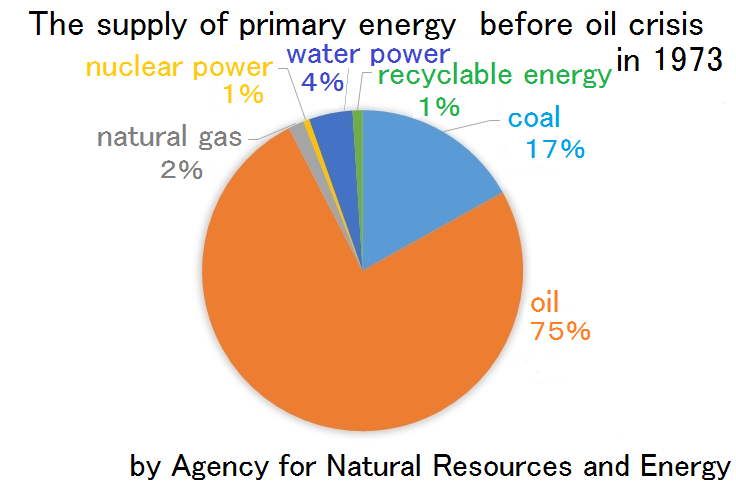Yuppy: We made it! When is it now?
Chamiko: It's the time which my grandmother is still a child.
Yuppy: Many towns are destroyed… Is this really Japan?
Chamiko: The war has just finished… But, Japan revives the economy in this hard condition, using a lot of coal!

Chamiko: After the war, Japan introduced "Priority production system (1946)", which means giving priority to securing workforce, funds and materials necessary to activate the coal and steel industry (Referred to "100 years of Japan with the numbers"). Thanks to this policy, Japan could revive the economy. In 1956, the economic white paper said, "It's no longer termed postwar."
Yuppy: Wow, Japan made great efforts! Look at the graph, and you can understand coal was the main energy source at that time.
Chamiko: That's right. However, it changeds a lot during *Rapid Economic Growth Period.
* Rapid Economic Growth Period: Economic growth between post-World War II era to the end of Cold War. During the economic boom, Japan rapidly became the world's second largest economy (after the United States) by the 1960s. (Referred to Wikipedia)
"TIME TRAVEL!!"

Chamiko: The main energy source was shifted from coal to petroleum, because a lot of cheap petroleum began to bewas imported from the Middle East. In 1961, the amount of the supply of petroleum as the primary energy exceeded that of coal foe r the first time. It's called Energy Revolution.
Yuppy: Then, Japan began to rely on foreign countries for energy sources…
Chamiko: Yes. Though The dependence on imports of energy was only 43.3% in1960.,It exceeded 80% in 1969.
Yuppy: But, why is it bad with us?
"TIME TRAVEL!!"





